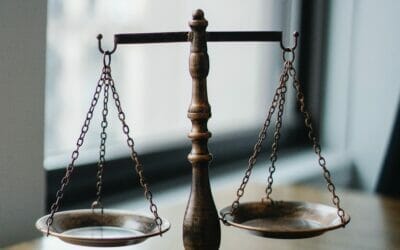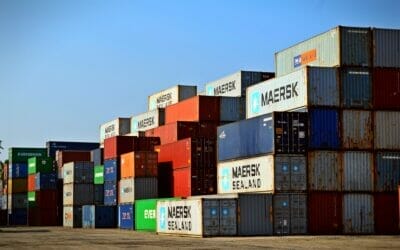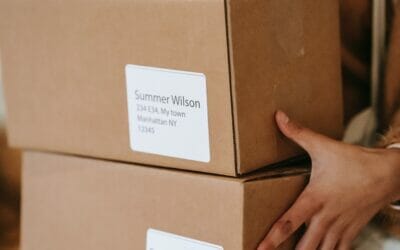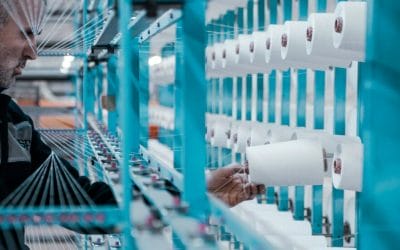Supply Chain
Modern supply chains are notoriously complex but it is still possible to make them more sustainable. For most businesses their supply chain is what contributes most to their overall carbon footprint. It makes sense when you consider the materials required to manufacture and then transport goods across the world. Service businesses may have less complicated supply chains, and may be able to make their supply chain more sustainable sooner.

The Basics

Where To Start?

Case Study
However with so many of the items we use coming from the opposite side of the world it is a tricky sustainability challenge. Just look up from your screen and see how many of the items close to you involved multiple complex journeys of composite materials and manufacturing before they got to where they are now. In fact, even without looking around, the smartphone or laptop that you’re using now required minerals, precious metals and other components to be taken from the earth, refined, and assembled by people in factories thousands of miles away.
Because of its significance within your business’s carbon footprint, assessing your supply chain sustainability is essential. If you are committed to making your business greener then it is an area that you will want to get to grips with. Our resources and other guides will help you to get started.
Resources Library
Starting at the Source: Sustainability in Supply Chains
McKinsey looks at the supply chain sustainability of consumer goods. Their research shows that more than 80% of greenhouse gas emissions in most consumer goods categories are in the supply chain. Only 25% of companies are addressing their scope 3 supplier...
Getting the Most out of your Sustainability Program
This article from McKinsey looks at the progress of four companies to understand how they are acting on their sustainability initiatives. McKinsey’s research showed that managing risk in the supply chain was a driving force. Companies like Mars Confectionary are...
The Sustainable Supply Chain Paradox: Bottom Line vs. Green Line
This article from Forbes outlines the need for businesses to balance the bottom line and the green line, in order to achieve a truly sustainable business. Attaining supply chain sustainability involves addressing many aspects, from design, manufacturing and logistics,...
Going Green Involves Thousands of Tiny Boring Steps
This article from the Irish Times looks at the increasingly intricate steps that businesses are having to take to achieve their sustainability targets. The first steps may be the easy wins, but looking at supply chains many businesses have complex mechanisms to work...
Givvable – Supplier Sustainability Tracker
Givvable is the go-to platform for businesses to track supplier sustainability and help you meet your sustainability targets. It is open to both buyers and suppliers and tracks a range of variables from circular economy, CO2 emissions, recycled content to social...
Shipping Firm Maersk Spends £1bn on ‘Carbon Neutral’ Container Ships
Maersk, the world’s largest shipping firm, announced a purchase of eight new shipping vessels this August, worth $1.4 billion. It marks the largest investment in carbon neutral shipping so far. These vessels can be fueled by green methanol in addition to traditional...
Minimizing the Cost and Environmental Impact of Mail
This article from B Corp-certified Keap Candles explains their fulfillment process. Their supply chain for delivery relies on third party logistics companies, similar to the vast majority of e-commerce businesses. With the aim of demystifying the process for...
Improving Sustainability in your Supply Chain
These resources from Lloyds Bank on supply chain sustainability summarise how to go about auditing and evaluating your supply chain. Choosing sustainable suppliers and supporting suppliers to become more sustainable are covered. If you are a supplier to other...
UN Global Compact – Supply Chain
The UN Global Compact is the world’s largest corporate sustainability initiative. Their work on supply chain sustainability promotes human rights, fair labour practices, environmental progress and anti-corruption policies. Resources include the Decent Work Toolkit...
Supply Chain case study: BMW
From petrol to electric BMW calculated that the transition from petrol to electric car production would increase the carbon footprint of their supply chain from 10 tonnes per vehicle in 2019 to 14 tonnes in 2030 if no countermeasures were taken. The energy required...









